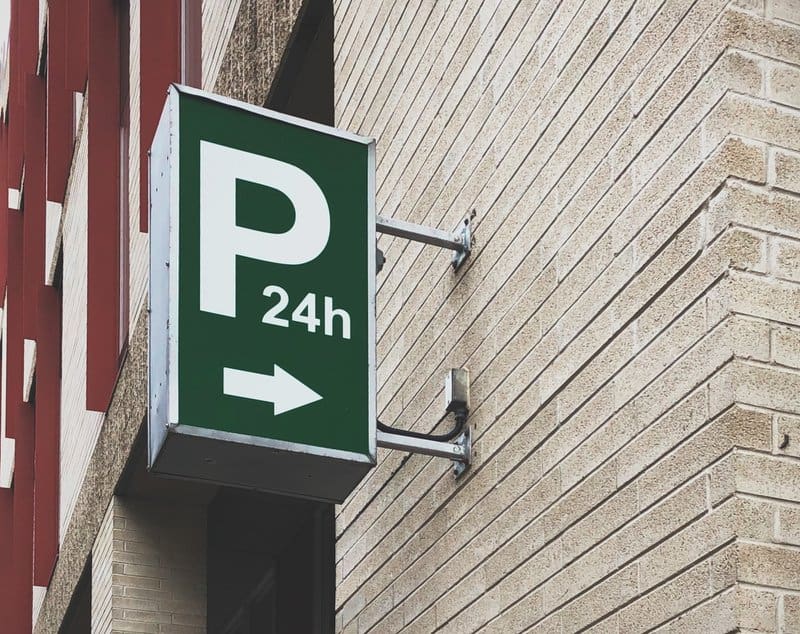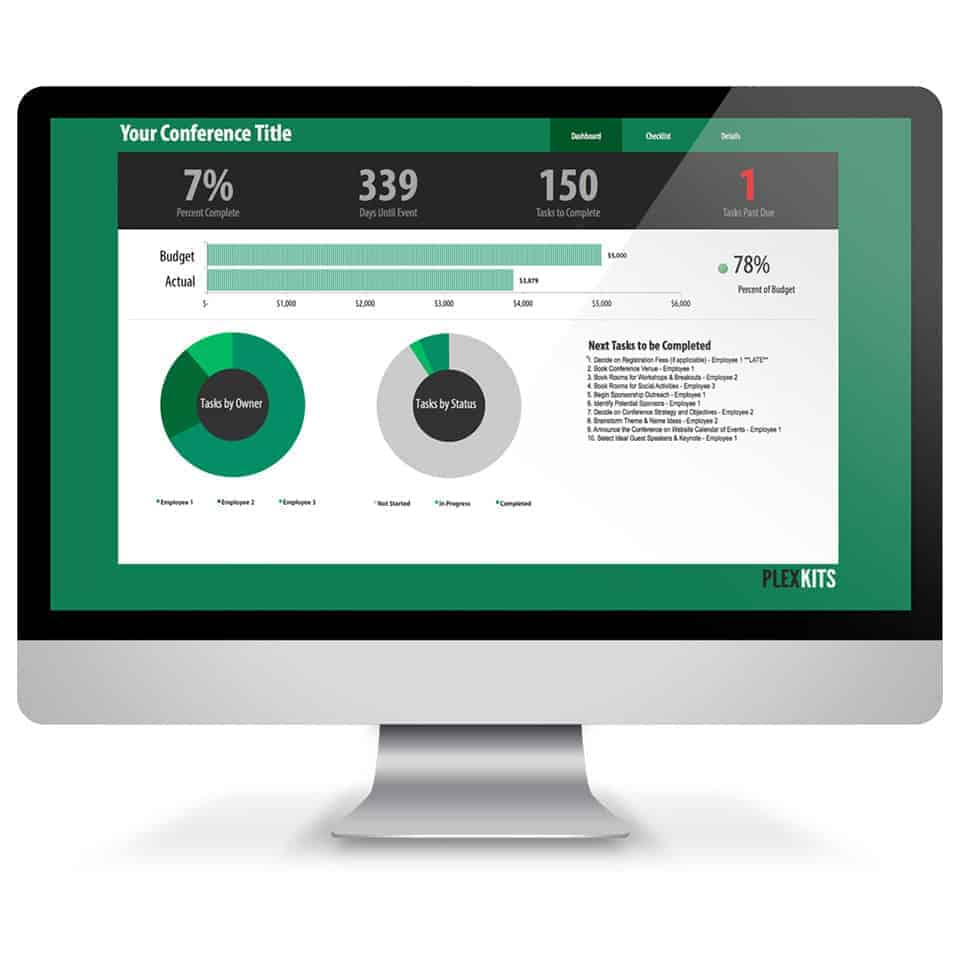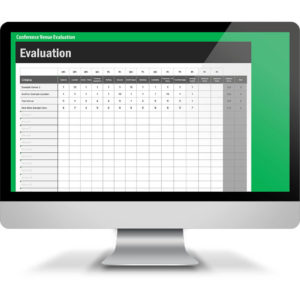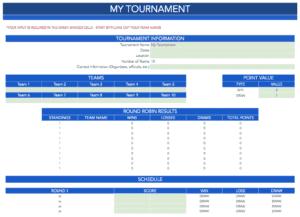There’s something about the pomp and circumstances of running a conference. Depending on the scope, length, and message of the conference, a group of like-minded professionals gathering over delicious food and beverages can be similar to networking heaven. Not only that, but it’s a chance to share useful information and an inspirational message with attendees, and the conference venue plays a large part in that.
Through conferences — connections can be made, and lessons learned that bolster your and your colleagues’ careers to the next level.
Beyond that, if this is your conference, you’ll quickly position yourself as an industry expert. You might be able to foster cross-promotional relationships and profitable partnerships.
In short, yes, conferences always sound like a phenomenal idea.
And, undoubtedly, all the things that were said above are 100% true. However, conferences don’t just spring up out of thin air.
Even if you run a conference on a bare-bones budget and skimp on some amenities, there are still multiple logistical challenges to deal with. Plus, you must strike the perfect balance of cost-efficiency and overall quality, so that — despite limited spending — you’re able to run a successful event.
So, while running a conference is a fantastic idea, planning one efficiently and cost-effectively necessitates your following the proper practices and processes.
This notion is no more apparent than when it comes to selecting a venue in which to host your conference.
Fortunately, with the helpful suggestions below, we’ll help you develop a framework to guide your decision on selecting the ideal conference venue for your event.

Does the Venue, “Set the Tone?”
Sure, you can go out of your way to design an itinerary that triggers a productive mindset and mood. As you plan more events, you’ll definitely get better at strategic scheduling that sets your preferred tone.
Let the conference venue do the work for you.
Try catering to your demographic with your choice in selecting a venue, instead of throwing down money on a place because it suits your budget. After all, it’s shockingly affordable to have a design in place at a venue that suits your industry’s demographics. This method is especially cost-conscious when compared to decorating on your own dime.
For instance, if you’re a high-performance sports brand, think about an arena setting. While creative/artistic professionals tend to veer towards trendy, modern space. Whereas trade shows logistically benefit from an open, industrial environment.
Make sure your conference venue has Wi-Fi!
Put yourself in your attendees’ shoes. If you were at a conference without Wi-Fi, you’d be pretty irritated. Remember, you’re not the only person trying to be cost-efficient, and data-usage costs money.
Yes, you could argue that you don’t want your guests perusing the internet while your keynote speaker passionately presents their speech. But that’s a short-sighted take.
It’s not 2001, and people at your conference need to remain connected. Their workplace networks are plugged into the digital world. There might be an emergency Skype call or email, for instance.
Beyond work reasons, people just appreciate Wi-Fi during any event. Everybody needs a break to check our Twitter or Facebook once in a while.
Also, failing to have Wi-Fi is a missed marketing opportunity. People will be far less inclined to share content from your event on social media if doing so in real-time means chewing up their data.

“Balling Out” on a Budget
When money talks, it usually screams loudly about not being frivolous.
You can’t afford to bankrupt your business—but you can’t host a perfect conference in an unappealing location to satisfy your budget. Remember that when selecting a venue.
As such, understand that the conference venue you choose will swallow the bulk of your budget—just ensure there’s some money left after choosing the ideal spot. Otherwise, you can’t afford other crucial facets of your conference, such as food, signage, supplies, or your keynote speaker.
If you wanted to choose a luxury conference venue — for instance — but haven’t been blessed with an enormous budget, research its seasonal rates. You’ll find that places cost more during the summer and fall versus the winter and spring.
Striking the perfect balance between quality and cost-efficiency necessitates planning your event months in advance. This way, you’ll find an optimal location at a shockingly affordable rate.
Now, not all conferences call for you to treat your guests like veritable “ballers.” But, it’s always a nice touch that can leave a lasting impression, and it can be done affordably (relative to your budgetary requirements).
Size Matters
Of course, with a tight space, your attendees may end up feeling like sardines in a tin can. People in tight spaces get cranky, the air gets hotter, and it’s an all-around uncomfortable experience.
Alternatively, if the event venue is too large for your guest list, the optics won’t be that of a successful conference. Plus, the overabundance of open space will make for a sterile, awkward environment. Even if all 50 guests you invite end up attending, it will come across as unprofessional when your conference room is meant for 200.
Also, ensure your guest list adheres to the building’s code. You don’t want to invite enough people to create a safety hazard.
Keep in mind, cozy and comfortable might be a perfect fit—especially for a more intimate conference. On the other hand, there are always times for an open, free-flowing environment.
Cover Your Tracks
Everybody doesn’t think they’ll need insurance until — well — they need insurance.
In many scenarios, conference venue won’t work with event planners who refuse to cover themselves. Therefore, it’s necessary to talk with the event venue about their insurance policy and what’s expected from you.
Provided your conference requires insurance, your general liability agent will take care of the event as long as they’re given adequate notice.
The Motivation of Location
Top-notch amenities, lightning-quick Wi-Fi, and eye-catching decorations mean very little if you’ve chosen is in an undesirable area.
What necessitates an awkward spot for a conference? The first detractor that comes to mind is a conference venue that's in a part of town with dense, busy traffic.
Conversely, say attendees are coming in from out of town. Your perfect conference venue is probably located near an airport.
When you’ve gone out of your way with attracting industry influencers and potentially big-name keynote speakers, you’ll want to ensure easy access to the event venue.
Also, those desirable guests aren’t going to want to come to a place that’s in a notoriously traffic-dense part of town.

Filled Bellies Are Your Friend
This blog fully sympathizes and emphasizes with conference planners on a shoestring budget. A large part of thriving as a business is centered around doing a lot with a little.
Don’t allow this no-frills approach to cloud your common sense, specifically with food.
Deciding not to provide food for your attendees isn’t a money-saving measure. It is, in fact, a reason for every person who received an invitation to blow off your conference for something else—where they’re probably being fed.
More importantly, double-check with the event venue about their food and beverage minimum. Conference venue that provides food will only do so for a bare minimum baseline. So, if your event venue charges for 100 people, ensure you confirm at least that many guests.
Be Strategic About Layout
When contemplating the overall layout of your event, you need to ask yourself the following questions (in no particular order):
- Have you invited any featured guests who have a following?
- Where will the food and bar be placed?
- Is there a specific attraction that will draw a crowd?
- Where would this be located?
- What’s the best option for traffic-flow?
- Is there enough room to set up a stage if one isn’t available?
- Are you using multiple rooms?
- Are the rooms located in close or far proximity to one another?
- Do you know the location of the emergency exits?
- What part of the conference venue will registration and check-ins occur?
- Where can you find and access audio and video equipment?
Where you place signs, tables, or seating and how you layout your space can significantly impact the overall success (or lack thereof) of your conference.
It’s vital to ask the conference venue for a detailed floor plan and have a firm grasp on what kind of events and activities you have in store.
Familiarize yourself with the technology at the conference venue
There is nothing worse than hosts and keynote speakers that struggle with technology on stage. It slows down presentations, and guests become restless and frustrated. Beyond that, it’s not a good look if it seems like you don’t have a good handle on the equipment situation.
All conferences require quality audio—although musical performances, for instance, might call for a bit more.
Beyond that, professional presenters will need a quality projector to work their magic.
Be firmly aware of what kind of event you’re putting together because then you’ll have a better inkling at the types of activities involved. Then, you’ll know the conference venue you choose will have the equipment that fits your conference’s specific set of needs.
Dig for a Little Bit Extra
It’s impossible to know all the possibilities involved in putting on your event. So, ask the conference venue if there’s anything they offer that might be of benefit to your event.
You’d be surprised at what kind of features or services might be available. Some event venues provide interactive whiteboards in conference rooms, which isn’t something that comes to mind for most planners.
Furthermore, requesting these customized services is a way to ensure you get the most bang for your buck. They solely exist for you to leverage, and you can make a smaller budget go far by merely asking the right questions.
Ask the conference venue staff the following questions during your planning stage:
- Can you and your team utilize the kitchen?
- Can you take advantage of outdoor seating?
- Is the conference venue associated with food vendors?
- Are guests able to easily access restrooms?
- How are the video and audio options?
Make Your Conference Venue Accessible to EVERYONE
One aspect that is non-negotiable about planning an event is making it accessible to both special needs individuals—per the Americans with Disabilities Act.
Not all conferences are created equal. Some events might require an influx of amenities, such as events that parents attend with babies and toddlers. In that case, you might need to hire a childcare worker and have a room dedicated to daycare services.

Parking Must Hit the Spot
Do not, under any circumstances, sleep on parking options.
People will do their research about your conference and its venue, and if they see there’s no parking, they’ll take a hard pass. Also, if they have to drop $75 on a daily pass, they won’t be overly motivated to attend your conference either.
You may have to pay an extra fee for parking arrangements, but you’ll get a return on that investment if you find a reasonable price.
If parking is a top priority for your conference, selecting a venue with its own parking lot or garage. In some scenarios, it’s common for conference planners to hire a valet service when the venue doesn’t. Although that’s an option which is only feasible for a bigger budget.
Don’t Forget Due Diligence
Before selecting a venue, perform a deep dive into customer reviews.
Meaning, you must do your best to seek out poor reviews to see how they were handled and to assess the critiques. No venue is going to have nothing but perfect feedback, and if they do, it’s likely fake.
Be vigilant about red flags and ask the conference venue about bad reviews they’ve received. Then, see how customer service responds.
Conclusion: The Devil is in the Details
No matter the venue, guests, location, or subject matter, your conference won’t be a success unless you painstakingly plan every last detail.
Naturally, you can’t avoid all surprises. But the more detail-oriented approach you take to planning, the more prepared you’ll be to adjust. Then, no matter what happens, you’ll roll with the punches. And you’ll pivot, when necessary, to ensure the most successful possible conference.















